THERE’S A HIDDEN REASON why our world seems so chaotic, and it’s hidden in plain sight. Wait—you may think something that powerful has to be big and dramatic, but it doesn’t. It’s quite simple, actually. Here it is: We focus on “things” and not how they relate to each other.
That’s all. Very simple. But very powerful.
We pay attention to the things and people in our lives, but not to the way they connect, or relate, to other things and people.
You don’t believe this simple practice of ignoring relationships can create chaos? You wonder how it does that? Here’s how: things don’t exist in a vacuum. They are embedded in webs of dynamic connections among many other things. This living context, always changing, is at least as important as the things themselves. When we ignore the connections, we don’t see the whole complex picture and because it’s always changing, our static view may often out of sync with reality. When that’s how we see the world, we find ourselves in many complex situations we have no clue how to handle, and the result is chaos.



